Military orders troops to use gender-neutral language
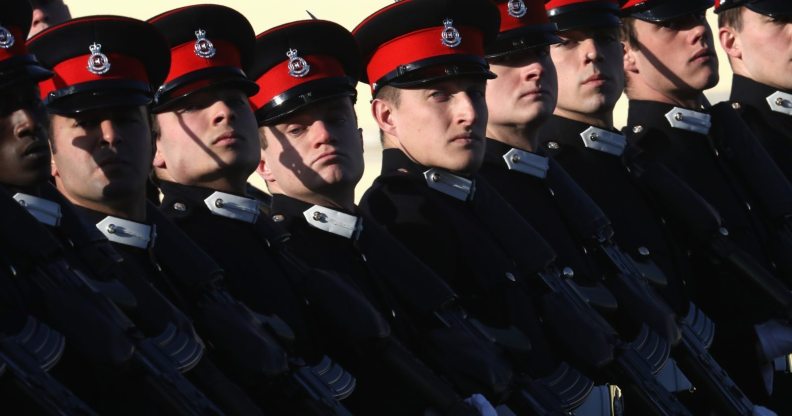
(Getty)
British troops have been told to use gender-neutral terms, as the military moves away from needlessly gendered language.
Words like “manpower,” “forefathers” and “chap” have been scrapped in favour of less patriarchal language, The Sun has reported.
The initiative has reportedly been taken at the Defence Academy of the United Kingdom to make the military more inclusive of women and transgender people.
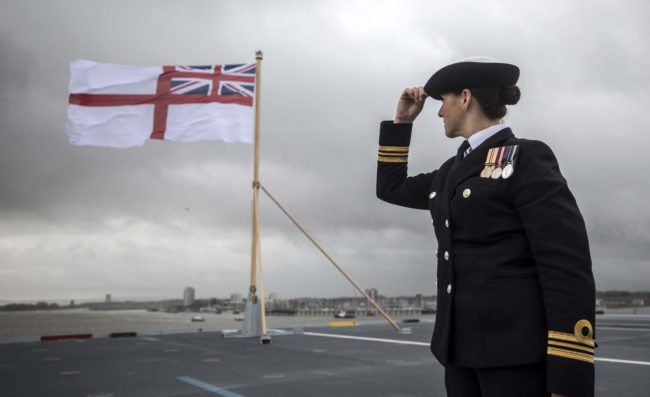
(Getty)
The shift is the military’s latest in favour of LGBT rights, after Army officers were featured in a Stonewall campaign tackling homophobic, biphobic and transphobic bullying.
Of course, not everyone is happy about this progressive move.
The Sun quoted an anonymous soldier who called the latest step “the daftest thing ever,” and accused the military of trying to create “politically-correct droids.”
It has also splashed the story on its front page, with the headline “THE PC BRIGADE”.
Gender-neutral language has attracted a huge amount of criticism in recent times, but it simply exists to make more people comfortable.
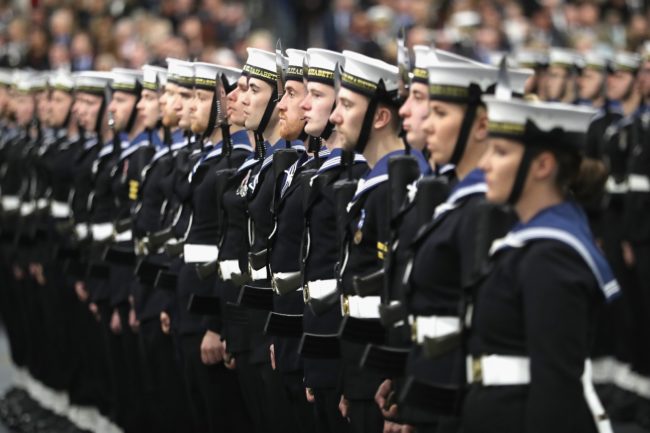
(Getty)
The military’s guidelines provide trainees at the academy – which teaches entrants for the British Armed Forces, Civil Service and other government departments – with a list of inclusive terms.
Students should use the phrase “best person for the job” instead of “best man for the job,” and “people,” “folks” or “friends,” rather than “chap.”
“Delivery clerk” or “courier” are preferable to “delivery man,” while “ancestors” or “forebears” are better than “forefathers,” for obvious reasons.
If you have made a “gentleman’s agreement,” maybe call it what it is: an “unwritten agreement.”
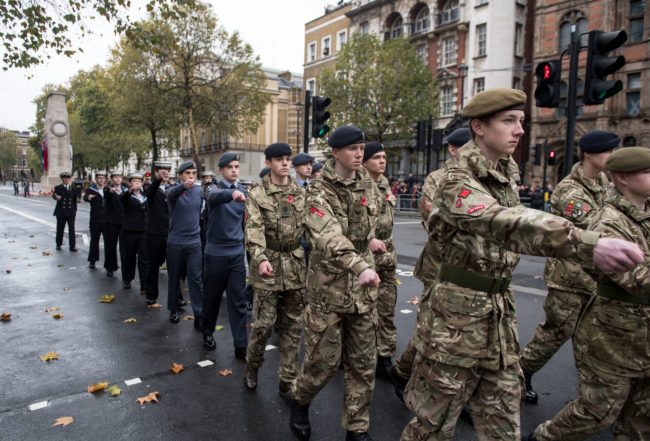
(Getty)
Instead of “housewife,” just say “homemaker,” and instead of “man” or “mankind” – both clearly patriarchal terms when used to refer to the entire species – just say “humanity,” “humankind,” “human race” or “people.”
The English language has enough terms which aren’t unnecessarily gendered, clearly, and there don’t seem to be any drawbacks to using them.
Rather than “man on the street,” trainees have been told to say “average citizen” or “person,” and instead of “manpower,” they can say “human resources.”
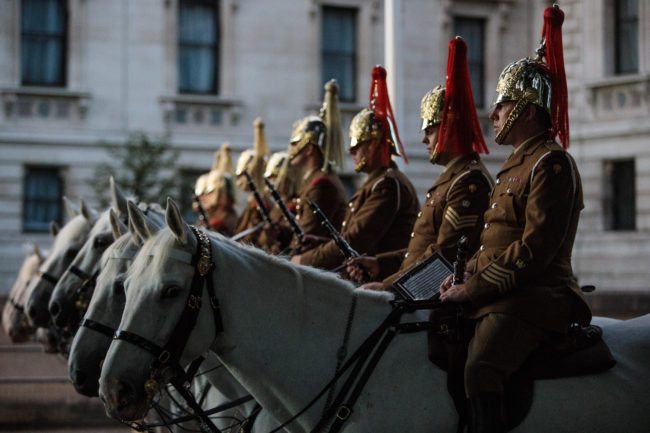
(Getty)
“Fairness” or “good humour” are acceptable replacements for “sportsmanship.”
A Ministry of Defence spokesperson said it is “continuously promoting a modern, inclusive, working environment to ensure individuals are recognised and feel valued,” according to The Sun.
It is at least a positive step after the appointment last month of Defence Secretary Gavin Williamson, who voted against allowing armed forces personnel to enter same-sex marriages.
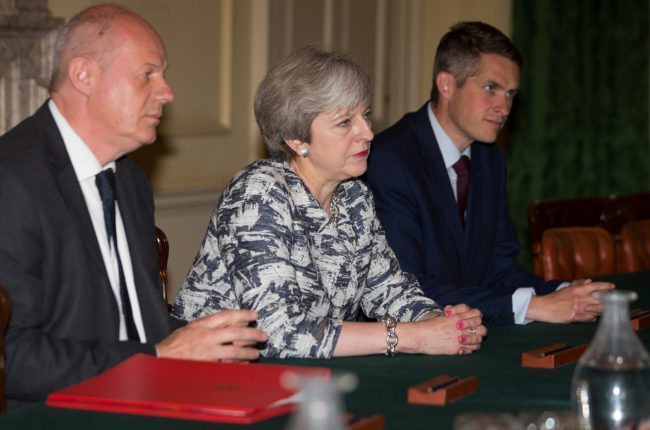
Gavin Williamson (right)
(Getty)
This latest move towards inclusivity is not alone in receiving a backlash for trying to promote gender-neutral language.
A headteacher was heavily criticised in September after she said she made a conscious effort to use gender-neutral language when referring to students.
Sally Anne Huang, of James Allen’s Girls School in south-east London, said she tried to call groups of students “girls” because the school accepted trans and gender-questioning pupils.
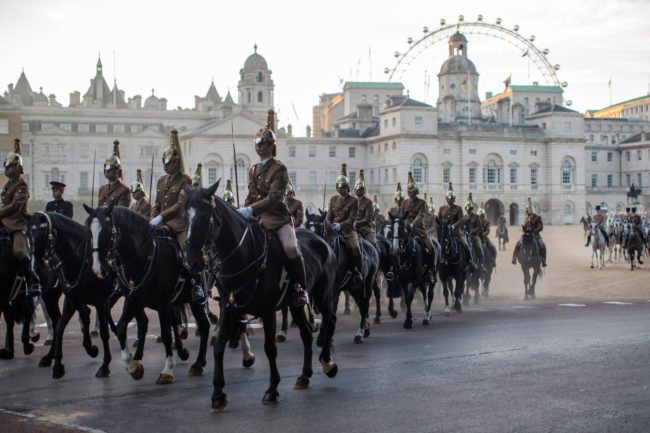
(Getty)
Also this year, students at Hull University were told to use gender-neutral terms in their essays or face being marked down, which was met with anger from certain corners.
A course on religion at the university warned participants that using language which is not “gender-sensitive” would leave them open to being penalised on a case-by-case basis.
And just last week, Easthampton High School in Massachusetts sparked controversy by telling students to use the term “first-year students” instead of “freshmen”.
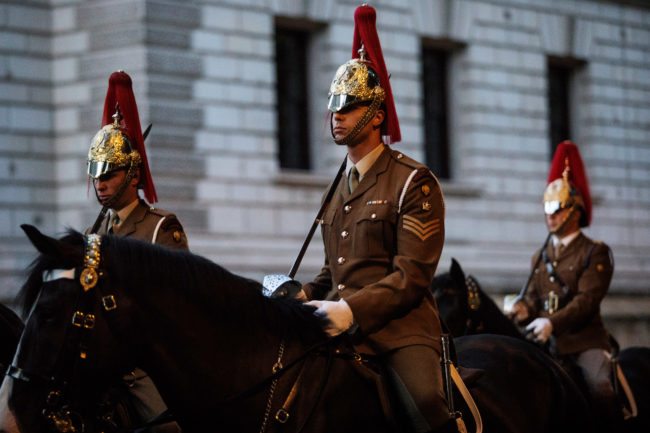
(Getty)
If none of these cases seem particularly outrageous to you, you’re not alone – after all, gender-neutral terms have a long history.
The Merriam-Webster dictionary included a gender-neutral pronoun before you were probably even born.
The company’s unabridged dictionary of 1934 featured the gender-neutral pronoun “thon” – short for “that one” – and continued to include the word until 1961.
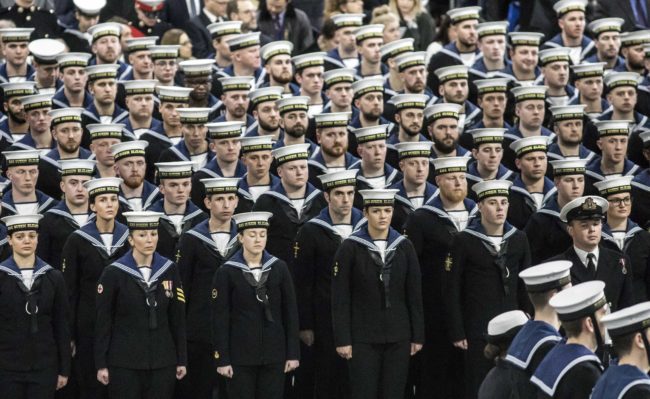
(Getty)
It calls into question why there is so much anger every time the word “gender-neutral” floats into the public consciousness.
Maybe to answer that, we should be asking who loses out when people use the term “forebears” instead of “forefathers.”

